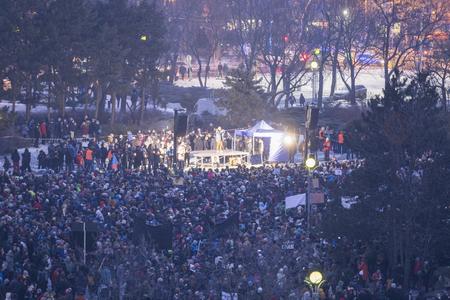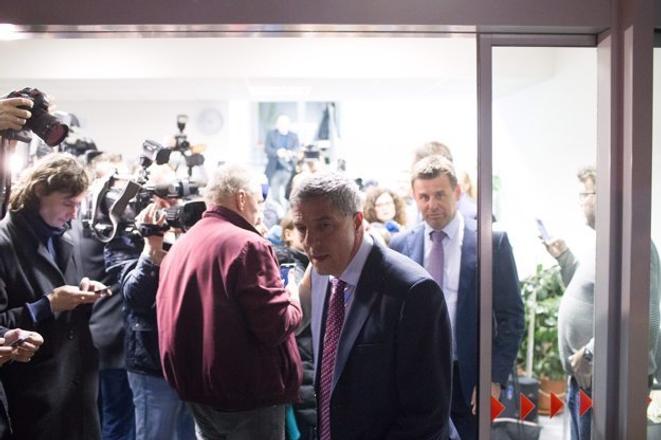Most-Hid will leave the government if it fails to make a deal with its two coalition partners, Smer and the Slovak National Party (SNS), over early elections. Most-Híd Chairman, Béla Bugár, announced the decision after an eight-hour-long session of the Most-Hid Republican Council, the party's decision-making body.
Bugár also pointed out that it was his party who wanted the resignation of Viliam Jasaň and Mária Trošková due to the suspicion of their having relations with people with potential ties to the Italian mafia, and it was his party who wanted the resignation of the interior minister.
"If talks about early elections fail, Most-Híd will exit the ruling coalition," Bugár said.
When asked whether early elections were likely to take place in the autumn together with the municipal elections, as earlier suggested by President Andrej Kiska, Bugár said it would have to be "much earlier than that".
The past two weeks
The governmental crisis has developed following the murder of investigative reporter Ján Kuciak, who was shot dead in his house in Veľká Mača together with his fiancée Martina Kušnírová. Their bodies were found two weeks ago, on February 25. The police immediately said they believed their murders were connected to Kuciak's work as an investigative reporter.
Their deaths, followed by the publication of Kuciak's last article across the Slovak media on February 28, gave impulse to a protest movement that brought tens of thousands of Slovaks to the streets. In his last, unfinished story, Kuciak described the links between the Italian mafia syndicate, Ndrangheta, and people close to Prime Minister, Robert Fico.
The gatherings that took place in Slovakia on March 9 are believed to exceed in size those that took place in November 1989, when the Communist regime collapsed in then Czechoslovakia. People in the streets were calling for Fico and his government to step down and give way to early elections.

Most-Híd was the decisive element in the whole crisis. A couple of days after Kuciak's article was published, the party leader Béla Bugár said they wanted Interior Minister Robert Kaliňák to step down, but that it was up to Smer to act. After that, Bugár left for his planned holiday overseas and had not been heard from for a week.


 Bela Bugar leaves amid talks of his party leadership to talk to his coalition partners. (source: Sme)
Bela Bugar leaves amid talks of his party leadership to talk to his coalition partners. (source: Sme)